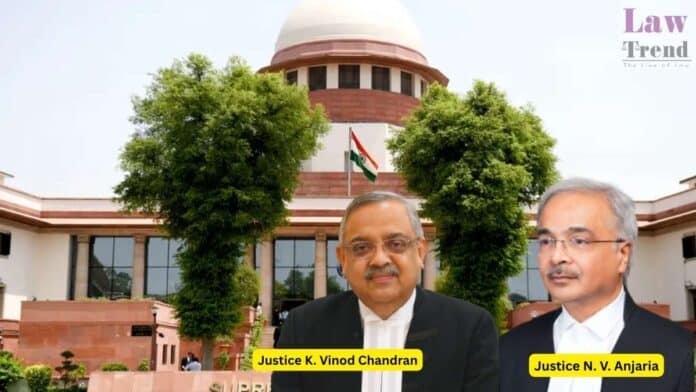The Supreme Court has ruled that in motor accident compensation claims, the registered owner remains liable to pay until the transfer of ownership is formally completed, and such liability must be indemnified by the insurer, even if the vehicle has been sold or possession handed over. A Bench of Justice K. Vinod Chandran and Justice

To Read More Please Subscribe to VIP Membership for Unlimited Access to All the Articles, Download Available Copies of Judgments/Order, Acess to Central/State Bare Acts, Advertisement Free Content, Access to More than 4000 Legal Drafts( Readymade Editable Formats of Suits, Petitions, Writs, Legal Notices, Divorce Petitions, 138 Notices, Bail Applications etc.) in Hindi and English.
Click to Subscribe
If you are already a VIP Member, Click to Login Now
READ ALSO Supreme Court Issues Notice to ED on MLA Abbas Ansari's Bail Plea in Money Laundering Case




